DMaLSE Project Presentation
This MOOC is an innovative online training programme developed as part of the Decommissioning Management and Leadership for Safety Education (DMaLSE) project, co-funded by the European Union.
To find out more about the project please go to: https://univ-cotedazur.eu/decommissioning-management-and-leadership-for-safety-education-dmalse/dmalse-project
Its content aligns with the perspectives of international organisations such as the International Atomic Energy Agency (IAEA), EURATOM, and the Nuclear Energy Agency (NEA) of the Organisation for Economic Co-operation and Development (OECD); all of which recognise the complexity of nuclear decommissioning projects (NDPs) and the importance of capacity building at the managerial level, both within industry and regulatory bodies.
The IAEA, EURATOM, and OECD/NEA acknowledge that the decommissioning of nuclear facilities goes beyond a purely technical challenge; it is fundamentally a complex organisational and human endeavour. Decommissioning projects require the coordination of multiple stakeholders, the management of long-term activities within multi-layered governance frameworks, and the ability to navigate significant uncertainties—particularly in relation to safety. These factors collectively generate substantial organisational and managerial challenges. The intricate interplay of multi-stakeholder coordination, complex governance structures, regulatory and technical uncertainties, and workforce management issues makes the efficient and safe execution of decommissioning projects exceptionally demanding.
In this context, by focusing on the interrelationships between regulatory, safety, social, economic, human and organisational challenges, the MOOC is designed to help you develop a deeper understanding of NDPs as complex phenomena. Its ultimate objective is to provide you with guidelines for the effective management of NDPs or for optimising the regulatory oversight of NDPs (the MOOC targets mid-career managers in both industry and regulatory bodies), ensuring their safety and efficiency throughout their lifecycle.
To achieve this objective, the MOOC is structured around three complementary and closely interconnected topics:
- Management & Leadership for Safety in Complex Organisations
- Complex Project Management
- Managing Complexity in Nuclear Decommissioning Projects: Key Challenges
For further information, please read the MOOC Managing Complexity in Nuclear Decommissioning Projects.
![]() MOOC Managing Complexity in Nuclear Decommissioning Projects
MOOC Managing Complexity in Nuclear Decommissioning Projects
Unit 1. Safety Management: Key Concepts
This first unit puts in perspective the key interconnected concepts related to safety management and leadership for safety. Unit 1 develops the following themes:
- Ensuring Safety: a Historical Approach
- Risks and Safety: a Technical Approach
- Risks and Safety: a Systemic Approach
- Standards
- Managing Safety: an Evolving Problematic
Unit 2. Organisation and Leadership: Key Concepts
This second unit puts in perspective the key interconnected concepts related to safety management and leadership for safety. Unit 2 develops the following themes:
- Organisational Structure & Design
- Safety Culture
- Knowledge Management
- Leadership
- Leadership for Safety
Unit 3. Complex Project Management: Key Concepts
- Project Planning
- Project Organising
- Programme of Projects
- Managing Complexity in Projects
- Managing Nuclear Decommissioning Projects
Unit 4. Complex Project Management: Key Challenges
Unit 4 explores where organisational uncertainty arises in complex projects and why this undermines classical planning-and-control approaches.
- Complex Project Organising
- Key Stakeholders’ Engagement
- Megaprojects Performance
- Complex Project Resilience
- Ethics for Stakeholder Engagement
Unit 5. Managing complexity in Nuclear Decommissioning Projects: Key Challenges
Unit 5 is specifically dedicated to the topic of Managing Complexity in NDP: Key Challenges. It is composed of five parts:
- Decommissioning Process and its Challenges
- Complexity and Risk Analysis
- Waste Management Strategy
- Management of Human Resources
- Knowledge Management
Authors
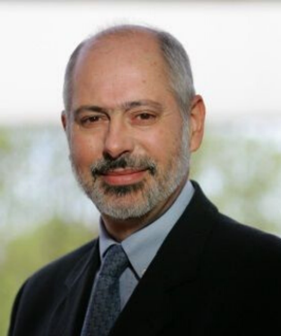 Jacques Repussard is since 2022 President of the French Institut de Maîtrise des Risques
(IMdR). After leading the French Institute for nuclear safety and radiation
protection (IRSN) for 13 years as Director General, Jacques Repussard has contributed
since 2016, as an independent consultant, to several European and international
projects, including the European Leadership for Safety Education project
(ELSE), providing his managerial expertise in the field of risk prevention and
mitigation. In his earlier career, J Repussard was DDG of the French
Institute for Environmental and Industrial risks (INERIS) (1997-2003), and
before that Secretary General of the European Standards Organisation (CEN)
(1997-2003) with headquarters in Brussels (Belgium).
Jacques Repussard is since 2022 President of the French Institut de Maîtrise des Risques
(IMdR). After leading the French Institute for nuclear safety and radiation
protection (IRSN) for 13 years as Director General, Jacques Repussard has contributed
since 2016, as an independent consultant, to several European and international
projects, including the European Leadership for Safety Education project
(ELSE), providing his managerial expertise in the field of risk prevention and
mitigation. In his earlier career, J Repussard was DDG of the French
Institute for Environmental and Industrial risks (INERIS) (1997-2003), and
before that Secretary General of the European Standards Organisation (CEN)
(1997-2003) with headquarters in Brussels (Belgium).
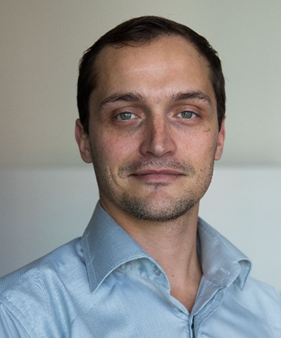 Yoann Guntzburger
is Assistant Professor in Science and Technology Studies at SKEMA Business
School. He holds a Ph.D. degree in management from HEC Montreal, an M.A.Sc. as
well as a bachelor degree in process engineering from Polytechnique Montreal.
Yoann is specialized in ethics in operational risk management and
organizational crisis management. His current topics of interest focus on
leadership for safety, science-policy interfaces related to sustainable
development, and AI for ethical decision-making. His recent publications
can be found in Science and Engineering Ethics, Safety Science and Food
Control. He teaches at SKEMA introductory and advanced courses in digital
transformation and sustainability, ethics in digital business and life cycle
management. Yoann is also the director of SKEMA, the institutional global
platform for sustainability and responsible management.
Yoann Guntzburger
is Assistant Professor in Science and Technology Studies at SKEMA Business
School. He holds a Ph.D. degree in management from HEC Montreal, an M.A.Sc. as
well as a bachelor degree in process engineering from Polytechnique Montreal.
Yoann is specialized in ethics in operational risk management and
organizational crisis management. His current topics of interest focus on
leadership for safety, science-policy interfaces related to sustainable
development, and AI for ethical decision-making. His recent publications
can be found in Science and Engineering Ethics, Safety Science and Food
Control. He teaches at SKEMA introductory and advanced courses in digital
transformation and sustainability, ethics in digital business and life cycle
management. Yoann is also the director of SKEMA, the institutional global
platform for sustainability and responsible management.
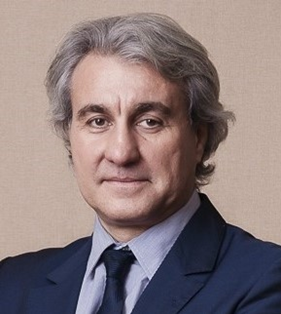 Didier Louvat, from 2011 to 2021, was the Managing Director of the European Nuclear Safety Training and Tutoring Institute, ENSTTI, an educational initiative supported by the European Technical Safety Organizations. From 2003 to 2010, He led the IAEA Programme on Radioactive Waste Management as Head of the Waste and Environmental Safety Section in the IAEA Department of Nuclear Safety and Security. Previous to that he headed the radioecological studies laboratory of the French Institute for Radiation Protection and Nuclear Safety, IRSN. Before he holds several positions at the Department of Nuclear Fuel Cycle of the French Atomic Energy Commission, CEA, where he developed programmes related to disposal of radioactive waste and environmental impact assessment. Didier LOUVAT graduated in Geology at Paris University and completed his PhD in Isotope Geochemistry at the same University in 1987.
Didier Louvat, from 2011 to 2021, was the Managing Director of the European Nuclear Safety Training and Tutoring Institute, ENSTTI, an educational initiative supported by the European Technical Safety Organizations. From 2003 to 2010, He led the IAEA Programme on Radioactive Waste Management as Head of the Waste and Environmental Safety Section in the IAEA Department of Nuclear Safety and Security. Previous to that he headed the radioecological studies laboratory of the French Institute for Radiation Protection and Nuclear Safety, IRSN. Before he holds several positions at the Department of Nuclear Fuel Cycle of the French Atomic Energy Commission, CEA, where he developed programmes related to disposal of radioactive waste and environmental impact assessment. Didier LOUVAT graduated in Geology at Paris University and completed his PhD in Isotope Geochemistry at the same University in 1987.
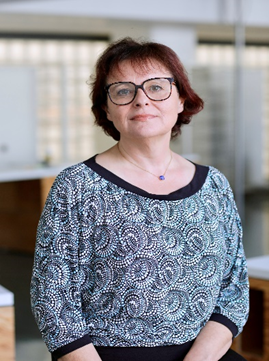
Evelyne Rouby is an Associate Professor in Management at University Côte d’Azur (UniCA) and a member of the GREDEG (Groupe de Recherche en Droit, Economie et Gestion, UMR 7321, CNRS) research center. She serves as the Scientific Director of the GREDEG research team “Ecological Transition and Organizational Resilience” and as the Director of the Economics and Management Graduate School and Research of UniCA “Organizational audit and human resource development” program. Additionally, she is a member of the “European Leadership for Safety Education” (ELSE) project, and of the “Decommissioning Management and Leadership for Safety Education” (DMaLSE) project, funded by the European Union, aiming to develop a new research-based approach for education in the domain of safety management and leadership in complex organizations. Her current research revolves around organizational dynamics in complex and high-risk organizations and investigates topics such as organizational attention, mindfulness, resilience, and routine dynamics. She has published in ranked journals in the fields of Organization Science and Human Resources Management. Examples include Système d’Information et Management, @GRH, Management International and M@n@gement.
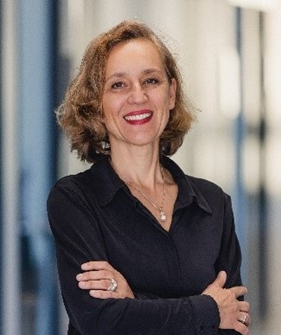
Renata Kaminska is a
Professor of Strategy and Innovation at SKEMA Business School and a member of
the SKEMA Knowledge Technology and Organization (KTO) research center and the
Université Côte d'Azur GREDEG (Groupe de Recherche en Droit, Economie et
Gestion, UMR 7321, CNRS). She serves as the Scientific Director of the
UCA/SKEMA Master 2/MSc “Research in Management and Innovation” program.
Additionally, she is a Key Expert for the European Leadership for Safety
Education (ELSE) project, funded by the European Union, which focuses on
developing innovative, research-based approaches to leadership for safety education.
Her current research interests include innovation, leadership for safety, and
organizational dynamics. She has published in several international journals,
including Advances in Strategic Management, Knowledge Management Research and
Practice, European Management Journal, Management International, Journal of
Business Strategy, and Research Policy.
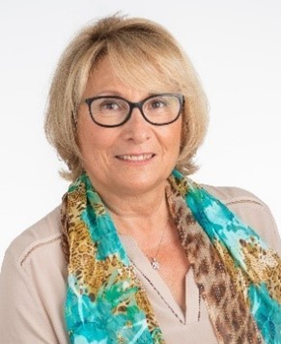 Catherine
Thomas is Professor in
Management at the Université Côte d’Azur (France) and a member of the GREDEG
(Groupe de Recherche en Droit, Economie et Gestion, UMR 7321, CNRS) research
center. Her current research interests include strategic organizing, leadership
for safety, organizational attention, organizational learning, and knowledge
management. Since 2019, she is the Project Leader of two Projects ELSE
(European Leadership for Safety Education 2019-2024) and DMaLSE (Decommissioning Management and Leadership
for Safety Education), funded by the European Union, aiming to develop a new
research-based approach for education in the domain of safety leadership and
complex project management. The results of her research are published in
leading international journals in the field of innovation management, knowledge
management and organization sciences. Examples include British Journal of
Management, Journal of Knowledge Management, Management International,
Industrial Marketing Management, International Journal of Project Management
and Safety Science.
Catherine
Thomas is Professor in
Management at the Université Côte d’Azur (France) and a member of the GREDEG
(Groupe de Recherche en Droit, Economie et Gestion, UMR 7321, CNRS) research
center. Her current research interests include strategic organizing, leadership
for safety, organizational attention, organizational learning, and knowledge
management. Since 2019, she is the Project Leader of two Projects ELSE
(European Leadership for Safety Education 2019-2024) and DMaLSE (Decommissioning Management and Leadership
for Safety Education), funded by the European Union, aiming to develop a new
research-based approach for education in the domain of safety leadership and
complex project management. The results of her research are published in
leading international journals in the field of innovation management, knowledge
management and organization sciences. Examples include British Journal of
Management, Journal of Knowledge Management, Management International,
Industrial Marketing Management, International Journal of Project Management
and Safety Science.
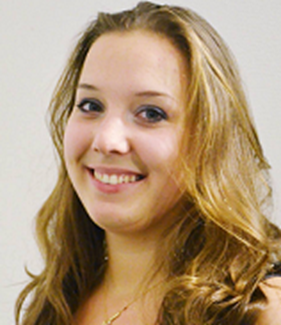 Natalia Jubault Krasnopevtseva is
assistant professor at the University Western Brittany (France). She holds her
PhD in management from the Université Côte d’Azur/ SKEMA Business School
(France). Her PhD thesis explored issues of leadership for safety in complex
environments, in particular in the context of the nuclear industry. She was
involved in the European Leadership for Safety Education (ELSE) project, funded
by the European Union, developing a new research-based approach for education
in the domain of leadership for safety. Her research interests include
leadership, organizing in high-risk environments, resilience, mindfulness,
organizational limits, organizational improvisation, and qualitative
methodology.
Natalia Jubault Krasnopevtseva is
assistant professor at the University Western Brittany (France). She holds her
PhD in management from the Université Côte d’Azur/ SKEMA Business School
(France). Her PhD thesis explored issues of leadership for safety in complex
environments, in particular in the context of the nuclear industry. She was
involved in the European Leadership for Safety Education (ELSE) project, funded
by the European Union, developing a new research-based approach for education
in the domain of leadership for safety. Her research interests include
leadership, organizing in high-risk environments, resilience, mindfulness,
organizational limits, organizational improvisation, and qualitative
methodology.
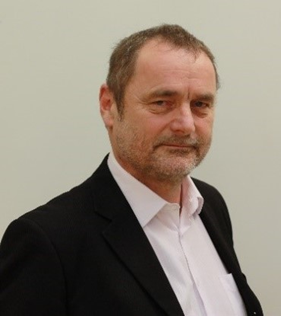 Jean-Louis Ermine began
his career as a teacher-researcher at the Universities of Algiers and Bordeaux.
He has worked at the French Atomic Energy Commission (CEA) as a Knowledge
Manager for more than 10 years. From 2003 to 2015, he was a professor at
Institut Mines-Telecom. He is currently Professor Emeritus at Institut
Mines-Telecom and international expert consultant in Business Knowledge
Management. He has written 9 books and more than 100 articles in
peer-reviewed journals and conferences. He is creator of the French Knowledge
Management Club and the French Academic Association for Knowledge Management.
He has been a project manager or advisor in numerous research or industrial
Knowledge Management projects in public or private companies and international
organizations. He was French delegate for ISO International Standards
Commission on Knowledge Management. He is the creator of the MASK Knowledge Management
method, which is now widely used in various companies and organizations around
the world.
Jean-Louis Ermine began
his career as a teacher-researcher at the Universities of Algiers and Bordeaux.
He has worked at the French Atomic Energy Commission (CEA) as a Knowledge
Manager for more than 10 years. From 2003 to 2015, he was a professor at
Institut Mines-Telecom. He is currently Professor Emeritus at Institut
Mines-Telecom and international expert consultant in Business Knowledge
Management. He has written 9 books and more than 100 articles in
peer-reviewed journals and conferences. He is creator of the French Knowledge
Management Club and the French Academic Association for Knowledge Management.
He has been a project manager or advisor in numerous research or industrial
Knowledge Management projects in public or private companies and international
organizations. He was French delegate for ISO International Standards
Commission on Knowledge Management. He is the creator of the MASK Knowledge Management
method, which is now widely used in various companies and organizations around
the world.
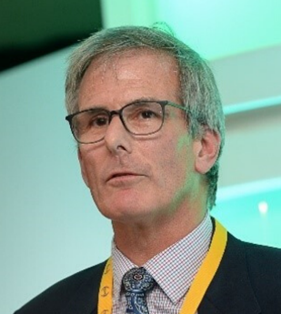 Colin Pilbeam is
Professor of Organizational Safety in the Safety and Accident Investigation
Centre at Cranfield University, UK. His undergraduate qualification was
obtained from Oxford University, and he holds doctorates in both natural and
social sciences. His research interests embrace many aspects of organizational
safety, including safety leadership, safety culture and safety learning, and
deal with practical organizational problems. This work has been funded by
Lloyds Register Foundation and Institution of Occupational Safety and Health and
by commercial organizations.
Colin Pilbeam is
Professor of Organizational Safety in the Safety and Accident Investigation
Centre at Cranfield University, UK. His undergraduate qualification was
obtained from Oxford University, and he holds doctorates in both natural and
social sciences. His research interests embrace many aspects of organizational
safety, including safety leadership, safety culture and safety learning, and
deal with practical organizational problems. This work has been funded by
Lloyds Register Foundation and Institution of Occupational Safety and Health and
by commercial organizations.
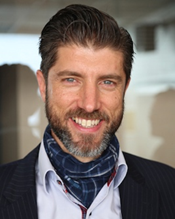
Dr Pierre A. Daniel is Full Professor of Project Management at SKEMA Business School and Academic Director of the MS® in Project & Programme Management. His teaching and research focus on complexity management in strategic and innovative projects. He has extensive experience as a consultant for international firms and executive programmes. Dr Daniel holds a PhD in Economics and Management Science.

Graham Winch is Professor of Project Management at Alliance Manchester Business School since 2004, and was awarded the International Project Management Association Global Research Achievement Award, 2024. He has run construction projects and researched various aspects of innovation and project management across a wide variety of engineering sectors. He was until recently Academic Director for Executive Education at AMBS, including accountability for project leadership programmes such as Managing Projects for BP, and Leading Complex Projects Programmes and Portfolios programme for BAE Systems. He has published over 70 refereed journal articles complemented by over 30 book chapters, and numerous conference papers, and research reports.

Dr. Natalya Sergeeva is Associate Professor in Project Management at the Bartlett School of Sustainable Construction, UCL. She is Director of Education responsible for ensuring education excellence, developing and implementing education plan, and the Connected Curriculum. Natalya’s research on project leadership, innovation and narratives has made outstanding theoretical, methodological and practical contributions. It supports leaders in crafting, communicating, maintaining and promoting narratives, and transferring them into collective actions to achieve organisational and global goals, and addressing global challenges, the Grand Challenges and climate change.
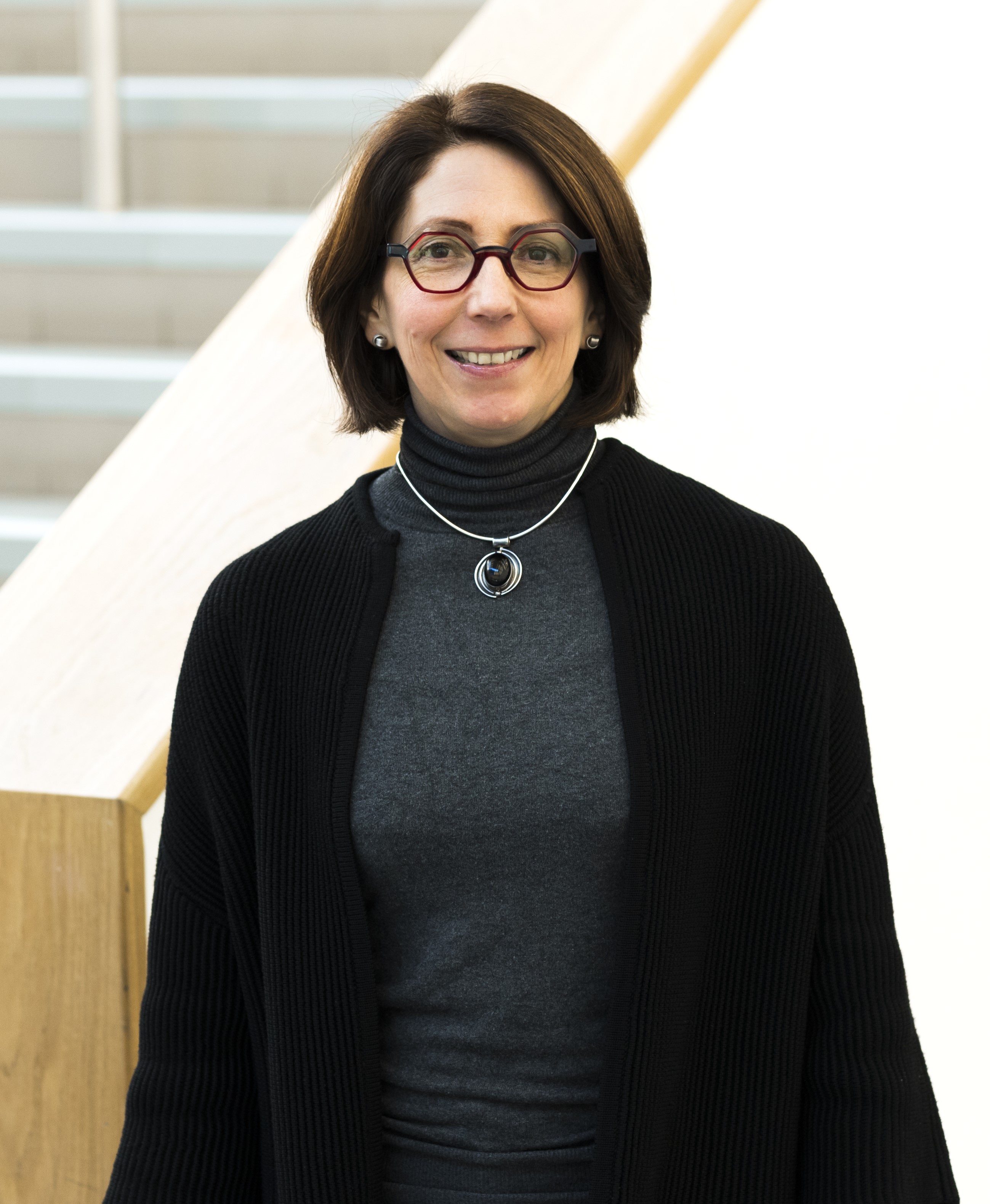
Eunice Maytorena Sanchez is
a Professor in Complex Project Management at Alliance Manchester Business
School. Her research interests are in project and programme management across a
range of sectors (construction and engineering, utility, defence, IT/IS). Her focus is on complex project management with
particular interest in risk and uncertainty and stakeholder management. She has
developed an expertise in assisting project organisations to develop a clearer
understanding of their organisational challenges by helping them develop their
capabilities in stakeholder management, strategic project management and risk,
uncertainty and complexity management.
She has worked on several research projects investigating managerial risk
perceptions and risk management in projects from a cognitive perspective; and
worked with a number of organisations in the public, private and non-for-profit
sectors in the UK and overseas. She has over 20 years of experience in Higher
Education teaching at undergraduate, masters, MBA and executive levels. Eunice
is co-author of Strategic Project Organizing (Oxford, 2022).
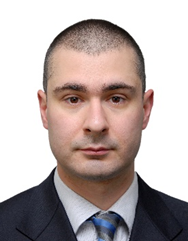 Giorgio Locatelli is a professor at Politecnico
di Milano, where he created and led the major “Complex Projects Business” at
the School of Management. Giorgio attracted over €1,700,000 in research funds
and is included in the Stanford-Elsevier list of the World’s top 2% scientists
since 2020. He has authored over 170 international peer-reviewed Scopus index
publications with over 4700 citations; H-Index 40. Giorgio is the 2023 “IPMA
Global Research Award” winner. He is Editor-in-Chief of the Project Management
Journal and sits on the editorial boards of “Progress in Nuclear Energy”,
“International Journal of Project Management,” and “Construction Management and
Economics".
Giorgio Locatelli is a professor at Politecnico
di Milano, where he created and led the major “Complex Projects Business” at
the School of Management. Giorgio attracted over €1,700,000 in research funds
and is included in the Stanford-Elsevier list of the World’s top 2% scientists
since 2020. He has authored over 170 international peer-reviewed Scopus index
publications with over 4700 citations; H-Index 40. Giorgio is the 2023 “IPMA
Global Research Award” winner. He is Editor-in-Chief of the Project Management
Journal and sits on the editorial boards of “Progress in Nuclear Energy”,
“International Journal of Project Management,” and “Construction Management and
Economics".
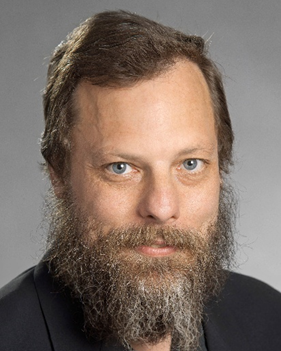
Andreas Nachbagauer is Professor of Management and Deputy Director of the Project Management degree programmes at the University of Applied Sciences BFI Vienna. Previously, he was Assistant Professor at the Institute of Personnel Management at WU Vienna and worked in social and market research. His research focuses on organization studies, strategic management, HRM, and the transformation of work. Recently, he served as Senior Researcher in a project on unexpected challenges and resilience in project management funded by the City of Vienna, with results published in leading journals such as Project Management Journal, International Journal of Managing Projects in Business, Project Leadership and Society, and Journal of Modern Project Management. Key findings were also published in the book ”Unerwartete Herausforderungen in Projekten erfolgreich managen” (Springer, 2020, co-authored with Iris Schirl-Böck and Edgar Weiss).

Xavier Vitart is a graduate engineer from the Ecole Centrale de Paris, with a PhD in Physics from the Université Pierre et Marie Curie in Paris. He has spent his entire career at CEA (France/Commissariat à l'Energie Atomique et aux Energies Alternatives), holding various positions in fundamental research, applied research, teaching and management. He was Director of the Institut National des Sciences et Techniques Nucléaires (CEA/INSTN), then Director of CEA's Inspection Générale et Nucléaire, a position he held for 5 years. He participated in IAEA working groups as an expert, and was the coordinator of various national scientific networks. In 2012, he took over responsibility for the international Master Nuclear Energy / Decommissioning Waste Management. Today, he is still part of the teaching team that runs this master's program at Université Paris-Saclay, both as coordinator and as a lecturer (courses on nuclear safety and safety culture).

Anne-Cécile JOUVE is since 2019 deputy to the director of safety assessment of the French Institute for nuclear safety and radiation protection (IRSN) which became The French Authority for Nuclear Safety and Radiation Protection (ASNR) in January 2025, where she oversees assessment in transport and civil facilities other than reactors. She is also a member of the Advisory Committee of Experts for Waste (GPD). She began her professional career in 1992, studying severe accidents at nuclear facilities and risks of external origin. She then held several hierarchical positions in IRSN units responsible for assessing the safety of facilities such as research laboratories and reactors, irradiators, particle accelerators, effluent and waste treatment plants, fuel cycle plants (fabrication and reprocessing), from design to dismantling, as well as the transportation of radioactive materials.

Jörg Feinhals is CEO of German and Swiss Association of Radiation Protection since 2021 (from 2008 to 2020 Head of the working group disposal of radioactive waste). He is also supporting the DIN Institute in the frame of radiation protection and nuclear technology. He worked from 1988 to 2021 for TÜV NORD Group as unit head and expert in nuclear decommissioning and disposal of radioactive waste. He was involved in different research projects like EURAD and responsible for the management of radioactive waste for countries without nuclear power plants within this project. He worked for many years on the planning of the retrieval of radioactive waste from the Asse mine in Germany. He organized the international symposium on release of radioactive material from regulatory control since 1998 and supported many IAEA expert missions since 2008.
Patrick O’Sullivan works as a Decommissioning Consultant at the International Atomic Energy Agency in Vienna, with responsibilities which include policy development, international collaboration and provision technical support to Member States. Previously he worked in a similar role at the OECD Nuclear Energy Agency in Paris, including work on regulation of waste management and decommissioning, technological developments in the field of decommissioning and methodologies for decommissioning costing. His career also includes more than 20 years’ experience on the UK nuclear programme, working initially on reactor design and safety analysis and ultimately on long term waste management planning. He has also worked for several years in the Netherlands, leading a team of scientists working on performance studies on geological disposal of radioactive waste and on decommissioning.

Mr Franz Borrmann is the managing director of iUS Institut für Umwelttechnologien und Strahlenschutz GmbH, a German-based engineering consulting company specialised in decommissioning of complex facilies. He studied chemistry and has a degree in environmental engineering. Leaving university he worked for several years as scientific officer at the federal office for radiation protection before founding iUS.Since 2009 iUS is providing international organizations, governmental agencies and the industry with services comprising licensing strategies, scientific and engineering concepts, support for project management and documentation, radiation protection services and modeling as well as knowledge management services.
